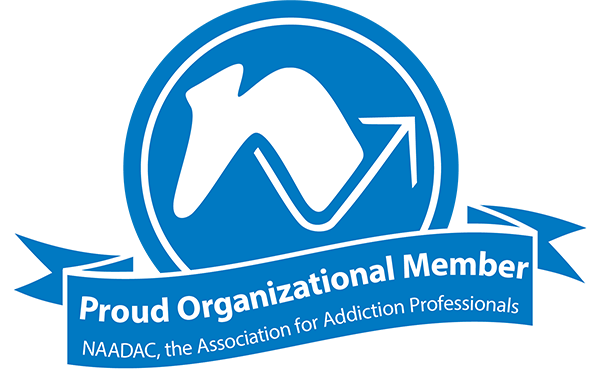Realize your full potential at Ikon Recovery Center, where we prioritize the uniqueness of your recovery process. Healing from addiction and mental health concerns truly takes a mind-body-spirit solution, and Ikon is dedicated to providing a tailored approach that addresses every facet of your well-being.
Interpersonal Therapy:
A Holistic
Treatment Solution
A Relationship-Based Treatment Intervention For Substance Use and Mental Health Disorder Sufferers
Elevate Your Healing Journey
with Interpersonal Therapy at Ikon
What Is Interpersonal Therapy?
Interpersonal psychotherapy (also known as IPT) is a time-limited, evidence-based treatment modality that focuses on resolving issues within relationships.[1] Developed by Gerald Kerman, Myrna Weissman, and Eugene Paykel in the 1970s as a treatment for depression, ITP has since been adapted to treat several other psychological and addiction concerns.[2]
IPT can aid individuals who are seeking to heal and repair their relationships with others and posits that doing so will also help to reduce psychological symptoms and improve recovery. IPT usually takes anywhere from 12-16 weeks [3] and can be delivered across treatment settings and levels of care. A credentialed professional, such as a mental health counselor, social worker, or psychologist, manages these sessions.
Ikon Recovery Center is committed to offering comprehensive, individualized care by incorporating IPT and several other evidence-based treatment modalities into our program. Our approach is always tailored to meet the unique needs of each patient, and we strive to create a serene, supportive environment that’s conducive to your recovery.
We offer several evidence-based practices at our scenic location in the heart of New Jersey, along with many other wellness practices and customized care plans. Our dedicated team of professionals collaborates with you to build resilience, enhance your interpersonal skills, and navigate life transitions effectively for a long-lasting recovery.
How (and Why) Interpersonal Therapy Works
The past few decades have seen an increase in the research around utilizing IPT for addiction and substance abuse,[4] making it one of the best evidence-based treatments for individual counseling for substance abuse.
IPT utilizes a ‘here and now’ focus to assist individuals in addressing their interpersonal challenges, making it particularly effective for many of the challenges faced in addiction and substance abuse. By honing in on the present moment, IPT helps individuals recognize and navigate the impact of their relationships, life transitions, and interpersonal dynamics on their addictive behaviors.
This therapeutic approach empowers individuals to develop healthier coping mechanisms, enhance communication skills, and build a robust support network. The emphasis on addressing underlying interpersonal issues distinguishes IPT as a powerful tool in the comprehensive and evidence-based treatment of substance abuse, acknowledging the integral role that relationships play in the recovery process.
IPT typically focuses on the following four core areas during its structured sessions:
- Relational conflicts that create stressors
- Life changes that impact how we view ourselves
- Grief and loss
- Difficulties in starting or maintaining healthy relationships
Additionally, IPT is a proven and effective solution for mood disorders (such as depression) and many other common, co-occurring conditions often seen in tandem with substance abuse.
Ikon’s treatment approach stands out with a unique blend of personalized care and cutting-edge therapeutic modalities, including Interpersonal Psychotherapy (IPT). We integrate IPT seamlessly into our comprehensive programs, recognizing the pivotal role of interpersonal relationships in mental health, addiction recovery, and overall well-being.
The Efficacy of Interpersonal Therapy
Although research in the late 20th Century focused almost exclusively on IPT for depression, over 1,000 publications examining IPT as a treatment for several disorders (and across clinical settings) have emerged over the past few decades.[5] Current studies have demonstrated IPT to be effective in treating depression, preventing further depressive episodes, and preventing relapse.[6] IPT has also shown promise in the treatment of eating and anxiety disorders.
A pilot study in 2013[7] found IPT for women with alcohol issues and co-occurring major depression to be effective, with all study participants reporting high treatment satisfaction overall.
Interpersonal Therapy at Ikon
Ikon Recovery Center seamlessly integrates Interpersonal Psychotherapy (IPT) into our innovative, individualized approach to your recovery. We view your healing journey as a dynamic, ongoing transformation rather than a mere destination.
Ikon strives to foster an authentic community devoted to ensuring your enduring well-being across a multi-level care structure – from Partial Care and Intensive Outpatient to standard Outpatient, aftercare, and beyond. The collaborative spirit is the cornerstone of our commitment to our clients, guiding you towards a recovery journey that’s as enriching as it is encouraging.
Treating Addiction
Frequently Asked Questions about Interpersonal Therapy
How does IPT differ from other therapeutic approaches?
Interpersonal Psychotherapy is a time-limited and structured therapy focusing on improving interpersonal relationships to alleviate psychological distress. It differs from other approaches by addressing relational issues as a core aspect of treatment.
How do I know if IPT is right for me?
The suitability of IPT depends on individual circumstances and therapeutic goals. If you’re struggling with interpersonal challenges, life transitions, or mood disorders, IPT may be a good fit. Consulting with a mental health professional can help determine the most appropriate therapeutic approach for your specific needs.
Are the interpersonal skills learned in IPT applicable to daily life outside of therapy?
Absolutely. One of the strengths of IPT is its focus on developing and enhancing interpersonal skills. The insights and strategies gained during IPT sessions can be directly applied to improve communication and relationships in various aspects of your life.
How long does it take to see results from IPT?
While the duration varies for each individual, many people report positive changes within the first few sessions. IPT is a time-limited therapy, often spanning 12 to 16 sessions, with individuals experiencing gradual improvements in their interpersonal relationships and overall well-being.
Can IPT be used for alcohol abuse?
IPT can help individuals struggling with alcohol abuse by focusing on interpersonal relationships and addressing related challenges, such as conflicts, role transitions, or deficits in communication skills. It can be particularly beneficial when these interpersonal factors play a significant role in the development or maintenance of alcohol abuse and other addiction issues.
Sources
[1] Markowitz, J. C., & Weissman, M. M. (2004). Interpersonal psychotherapy: principles and applications. World Psychiatry : Official Journal of the World Psychiatric Association (WPA), 3(3), 136–139. Retrieved from https://www.ncbi.nlm.nih.gov/pmc/articles/PMC1414693/ on November 13th, 2023
[2] Markowitz, J. C., & Weissman, M. M. (2012). Interpersonal Psychotherapy: Past, Present and Future. Clinical Psychology & Psychotherapy, 19(2), 99–105. Retrieved from https://doi.org/10.1002/cpp.1774 on November 13th, 2023
[3] Markowitz, J. C., Svartberg, M., & Swartz, H. A. (1998). Is IPT Time-Limited Psychodynamic Psychotherapy? The Journal of Psychotherapy Practice and Research, 7(3), 185–195. Retrieved from https://www.ncbi.nlm.nih.gov/pmc/articles/PMC3330506/ on November 13th, 2023
[4] Brache, K. (2012). Advancing Interpersonal Therapy for Substance Use Disorders. The American Journal of Drug and Alcohol Abuse, 38(4), 293–298. Retrieved from https://doi.org/10.3109/00952990.2011.643995 on November 13th, 2023
[5] Weissman, M. M. (2020). Interpersonal Psychotherapy: History and Future. American Journal of Psychotherapy, 73(1), 3–7. Retrieved from https://doi.org/10.1176/appi.psychotherapy.20190032 on November 13th, 2023
[6] Cuijpers, P., Donker, T., Weissman, M. M., Ravitz, P., & Cristea, I. A. (2016). Interpersonal Psychotherapy for Mental Health Problems: A Comprehensive Meta-Analysis. American Journal of Psychiatry, 173(7), 680–687. Retrieved from https://doi.org/10.1176/appi.ajp.2015.15091141 on November 13th, 2023
[7] Gamble, S. A., Talbot, N. L., Cashman-Brown, S. M., He, H., Poleshuck, E. L., Connors, G. J., & Conner, K. R. (2013). A Pilot Study of Interpersonal Psychotherapy (IPT) for Alcohol Dependent Women with Co-occurring Major Depression. Substance Abuse : Official Publication of the Association for Medical Education and Research in Substance Abuse, 34(3), 233–241. Retrieved from https://doi.org/10.1080/08897077.2012.746950 on November 13th, 2023







